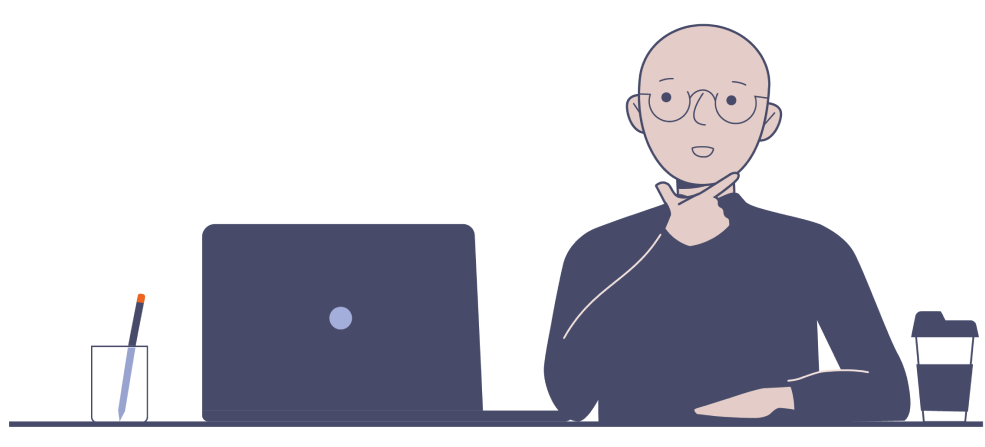Case Study: Moving Coaching from Good to Great
Resources|6th June 2023
Deputy Head - ISCA Academy
Director of Implementation - Steplab
When I arrived in the summer of 2022, there was enthusiasm about the idea of coaching but a need to provide clarity around what makes great coaching, and drive the school’s instructional coaching programme to excellence.
Rachel’s Introduction:
Steplab supports schools to supercharge their professional development programmes. Every day schools get in touch because they want to introduce instructional coaching for the first time, and need training resources, implementation models, and quality assurance tools to support an effective launch. Increasingly, we’re hearing from just as many schools who have strong coaching and PD programmes in place, and are looking for ways to increase their impact and fine tune their approach.
So how do you implement Steplab in a school which already has an established coaching programme? What can Steplab add that existing coaching programmes are often missing?
Jayne Harmer, Assistant Headteacher at Isca Academy, shares how her team took coaching from good to great, and achieved some of Steplab’s highest coaching completion rates in the country.
A quick note on terminology: on Steplab, teachers can observe each other and provide feedback in 3 ways:
- 1.A weekly or fortnightly observation, ending with a full instructional coaching feedback session, including modelling, planning and rehearsal
- 2.A drop-in of any teacher in the school (not just their coachee) to learn from or offer feedback on their practice, with brief written feedback and positive shout-outs
- 3.Shout-outs celebrate great practice, and are publicly visible to all staff on the school’s Steplab homepage
Jayne’s Story:
At Isca, coaching has been central to our culture for many years. When I arrived in the summer of 2022, there was enthusiasm about the idea of coaching but a need to provide clarity around what makes great coaching, and drive the school’s instructional coaching programme to excellence.
Steplab was invaluable in creating these processes. It meant coaching transformed from a PD conversation into a data driven and structured system that ensured teachers continuously improved their practice.
“Every teacher needs to improve, not because they are not good enough, but because they can be even better.” (Dylan Wiliam)
Wiliam’s quote is at the heart of everything we do at Isca. It’s the driving force behind our mission to ensure our scholars have the best experience possible, and that we are a beacon of national excellence by 2027.
We are incredibly privileged to collaborate with coaching leads across the Ted Wragg Trust, a hub of coaching excellence in the South West. Each term, coaching leads from our different schools meet to participate in high quality training. This ensures we are always reviewing, learning from each other and elevating our coaching programmes.
During the summer of 2022, there was a clear need for a relaunch of coaching to avoid the ‘ok plateau’ (Foer, 2012). In order to do this, we planned and implemented three key stages:
Stage 1: Evolve the coaching team and provide regular training
A strong coaching team had already been established, and now was the time to elevate this to the next level and expand the team. To ensure maximum buy-in from new coaches, it was important to recruit coaches who want to coach and hold coaching in the same high regard.
We sent out this advert to all staff:
- 1.Are you passionate about pedagogy?
- 2.Would you like to deliver bespoke 1-2-1 CPD weekly?
- 3.Are you looking to further your career?
- 4.We can offer outstanding training delivered by the front runners in coaching nationally and internationally.
- 5.If you have answered yes to any of these questions, we want you!
We had an overwhelmingly positive response rate to the advert, and coaches were selected to join the team based on having the time and passion to fulfil the role effectively, and the ability to drive staff improvement across the Academy. This now meant that the coaching team had doubled in size, and we could move forward with stronger foundations for growth.
The next required layer was precise training for these new coaches as well as upskilling our existing coaches. The key component underpinning all our training sessions for coaches was - and still is - deliberate practice. This enabled new coaches to ‘see it, name it, do it’ (Bambrick-Santoyo, 2018). They had the opportunity to see examples of great coaching; name and explore the component parts; and build effective habits through regular deliberate practice. Our existing coaches honed their coaching skills, and gained valuable experience mentoring newer coaches. The Coaching Skills Builder and The Steplab Coaching Programme made this process even more robust, and ensured quality in training.
Once the team was upskilled and aligned with our whole school vision for coaching excellence through habit, it was time to explore how to increase staff engagement.
Stage 2: Remove barriers with careful timetabling and clear expectations
At this point in our journey, I unpicked the limiting factors in our existing coaching programme by speaking to the coaching team and the wider staff body, and analysing the Steplab data. The common theme was that partial coaching completion (missed observations or feedback sessions) was due to lack of time.
It was important to ensure every member of the Isca team had dedicated time and space to receive their feedback. Sweating the small stuff during the planning process enabled coaches to be paired with a coachee based on coaching style and expertise, as well as allowing times for feedback meetings to be scheduled during a mutually convenient time. This meant all coaches were able to build strong relationships with their coachees quickly; they had time allocated for these meetings and could invest in building successful coaching partnerships. This time is also built into coaches and coachees’ directed time and timetables, meaning it’s protected and is not adding to workload.
To elevate this even further, we launched The Coaching Lab, our dedicated space for coaching feedback. This is a mini classroom where the coaching feedback meetings take place. We use Steplab to guide our feedback conversations, focusing on the highest leverage action steps and nothing more. These conversations are focused and ensure opportunity for deliberate practice, where the coach models the action step and the coachee practises as many times as required to make that action step permanent. After the meeting has finished, teachers are ready to model their action step in the very next lesson.
Stage 3: Strive for 100% engagement and excellence
With the coaching programme and timetabling logistics in place, it was vital to create a positive coaching culture throughout the Academy. At this point, we added every member of staff to Steplab and launched SLT shout-outs during every lesson. This saw SLT dropping into lessons and logging shout-outs on Steplab, which are publicly visible to the whole staff. This has created a buzz of positivity as we are celebrating best practice demonstrated by everyone. Each morning in our SLT meetings, we narrate the number of shout outs given the previous day. Doing this every day highlights their importance, and keeps them at the forefront of our minds. Everyone on the senior leadership team is fully invested in all aspects of our coaching programme, and this has elevated its importance across the school.
A coaching team briefing is scheduled weekly as an opportunity to check in with the coaches to ensure we are on track with our journey to 100% coaching completion. We are relentless with the data streams and ensure we are continuously striving for 100% completion every single week; it is this approach that has supported an increase of completion from 66% in September 2022 to 98% by January 2023. During our briefings there is always an opportunity for deliberate practice and training for coaches, provided through the Coaching Skills Builder. This has supported our continuous development as a team.
At Isca Academy we have been on a journey, but we’ve only just begun. We are determined to be the highest performing school in the country by 2027 and Steplab is a cornerstone of our strategy to make it there. Watch this space…
Key takeaways for moving from good to great with Steplab
Stage 1: Evolve the coaching team and provide regular training
- 1.Advertise and recruit motivated and skilled staff as coaches
- 2.Make modelling and rehearsal an integral part of training for coaches
- 3.Train coaches regularly; meet often and drip feed messages and key concepts
Use Steplab to: access pre-prepared and online training modules which model quality coaching and guide rehearsal.
Stage 2: Remove barriers with careful timetabling and clear expectations
- 1.Talk to staff and find out what the barriers are to 100% coaching completion rates
- 2.Use timetabling to remove barriers: provide a set time and place for a coach and coachee to meet each week
- 3.Design careful coaching pairs; check timetabling compatibility and consider expertise, motivations and personality types
- 4.Provide a dedicated mini-classroom for coaching to support focused feedback conversations
- 5.Use Steplab’s feedback process to ensure coaching conversations prioritise modelling and rehearsal. This ensures coachees make the change to their practice that week
Use Steplab to: track coaching completion each week, design careful coaching pairings, and explore how coaches are using modelling and rehearsal.
Stage 3: Strive for 100% engagement and excellence
- 1.Launch lesson drop-ins and shout-outs for all staff - even those not involved in the coaching programme - to build a positive culture
- 2.Share stats and trends with SLT daily to drive drop-ins and shoutouts as a central focus
- 3.Ensure buy-in from the whole SLT; the entire team needs to drive coaching as a priority across the school
- 4.Meet coaches weekly to discuss coaching completion rates and ensure coaching happens
- 5.Provide on-going training; ensure the coaching team is always developing and improving
Use Steplab to: log and collate lesson drop-in feedback and shout-outs; dig into drop-in stats and trends, and track coaching completion and impact.
Want to know more?
Click here to enquire about becoming a Steplab school and accessing our resources
Already a Steplab school?
- 1.Watch our webinars to find out more about how to maximise the impact of Steplab’s tools and resources
- 2.Access the Steplab Coaching Programme here
- 3.Improve your coaching using the Coaching Skills Builder
References:
Bambrick-Santoyo, P., 2018. Leverage leadership 2.0: A practical guide to building exceptional schools. John Wiley & Sons.
Foer, J., 2012. Moonwalking with Einstein: the art and science of remembering everything.





